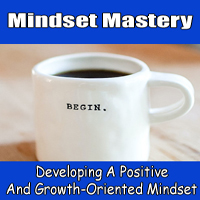


A Journey To Health And Well-Being

In the ever-evolving landscape of modern life, the pursuit of wellness goals has become a cornerstone of personal growth and self-care. The quest for well-being extends beyond physical health; it encompasses mental and emotional harmony, a sense of fulfillment, and a balanced lifestyle. In this article, we'll delve into the importance of pursuing wellness goals and explore the strategies to embark on this transformative journey.
Defining Wellness
Wellness is a holistic concept that encompasses physical, mental, emotional, and social well-being. It is not merely the absence of illness but the presence of vitality and balance. Pursuing wellness goals involves striving for optimal health, cultivating self-awareness, and nurturing a harmonious life.
The Power Of Goals
Setting wellness goals is a potent means of channeling your efforts toward self-improvement. Goals give direction, motivation, and a clear path for achieving personal growth and well-being. Whether it's aiming for a healthier body, a calmer mind, or more fulfilling relationships, wellness goals provide a sense of purpose.
Key Components Of Wellness Goals
Physical Health: Goals related to physical well-being can encompass areas like nutrition, fitness, sleep, and preventive healthcare. Setting goals for regular exercise, balanced nutrition, and maintaining a healthy weight are common examples.
Mental Health: Wellness goals related to mental health may focus on stress management, cultivating resilience, and practicing mindfulness. These goals can help individuals cope with life's challenges and build emotional strength.
Emotional Well-Being: Emotional wellness goals may involve self-compassion, self-expression, and fostering positive relationships. Pursuing these goals can lead to greater emotional intelligence and a deeper sense of contentment.
Social Connections: Setting wellness goals in the realm of social well-being can involve spending quality time with loved ones, building and maintaining healthy relationships, and participating in community activities. Social connections are an integral part of overall wellness.
Strategies For Pursuing Wellness Goals
Goal Setting: Start by setting clear, achievable wellness goals. Ensure that these goals are specific, measurable, and time-bound (SMART goals).
Create A Plan: Develop a concrete plan to achieve your wellness goals. Break down larger objectives into smaller, manageable steps. This approach makes your goals more attainable and less daunting.
Seek Support: Share your wellness goals with friends, family, or a support group. Having a support system can provide motivation and encouragement throughout your journey.
Monitor Progress: Regularly track your progress toward wellness goals. Adjust your plan as needed, celebrate your achievements, and learn from setbacks.
Practice Self-Care: Prioritize self-care in your daily routine. Allocate time for activities that promote relaxation, stress reduction, and mental clarity, such as meditation, yoga, or hobbies you enjoy.
Professional Guidance: Consider seeking guidance from healthcare professionals, therapists, or wellness coaches when working on complex wellness goals.
The Rewards Of Pursuing Wellness Goals
Pursuing wellness goals is a journey filled with personal growth and self-discovery. The rewards extend beyond physical health; they encompass a greater sense of happiness, emotional resilience, and an overall improved quality of life. Achieving wellness goals can lead to a deeper understanding of yourself, enhanced self-esteem, and a more profound connection to your inner well-being.
The pursuit of wellness goals is a transformative journey that contributes to a healthier, more fulfilling life. By setting clear, achievable goals, creating a well-thought-out plan, and seeking support when needed, individuals can embark on a path that nurtures their holistic well-being. Wellness is not a destination but an ongoing process of self-improvement, and pursuing wellness goals is a significant step towards a balanced, meaningful, and vibrant life.


 The Role Of Self-Mastery: Self-mastery is the art of gaining control over one's impulses, emotions, and actions. It's about harnessing one's willpower to overcome challenges and obstacles, procrastination being one of them. To defeat procrastination, we must develop self-mastery, which is a lifelong journey of self-improvement and discipline.
The Role Of Self-Mastery: Self-mastery is the art of gaining control over one's impulses, emotions, and actions. It's about harnessing one's willpower to overcome challenges and obstacles, procrastination being one of them. To defeat procrastination, we must develop self-mastery, which is a lifelong journey of self-improvement and discipline.
Strategies For Self-Mastery And Procrastination Defeat:
Set Clear And Compelling Goals: Self-mastery begins with setting clear, specific, and motivating goals. When you have a compelling reason to act, it becomes easier to resist procrastination. Your goals serve as a North Star guiding your actions.
Practice Mindfulness: Mindfulness helps you become more aware of your thoughts and emotions. When you notice procrastination creeping in, you can intervene and redirect your focus toward the task at hand. Techniques such as meditation and deep breathing can help you cultivate mindfulness.
Establish A Routine: Building a structured routine creates a sense of predictability and discipline in your daily life. Knowing when and where you should be working on tasks reduces the likelihood of procrastination.
Use The Two-Minute Rule: If a task takes less than two minutes to complete, do it immediately. This simple rule can prevent small tasks from piling up and becoming sources of procrastination.
Embrace The Pomodoro Technique: The Pomodoro Technique involves working in focused, short bursts (usually 25 minutes) followed by a short break. This can be highly effective in combating procrastination and maintaining concentration.
Practice Delayed Gratification: Train yourself to delay immediate gratification for a more substantial reward in the future. This shift in mindset can help you resist the temptation to procrastinate.
 1. Recharging In Solitude: Introverts have a well-documented need for solitude and personal space to recharge their mental and emotional energy. Privacy is the key to creating this space for themselves, allowing them to unwind, reflect, and regain their vitality. Without these moments of privacy, introverts can feel drained and overwhelmed.
1. Recharging In Solitude: Introverts have a well-documented need for solitude and personal space to recharge their mental and emotional energy. Privacy is the key to creating this space for themselves, allowing them to unwind, reflect, and regain their vitality. Without these moments of privacy, introverts can feel drained and overwhelmed.
2. Self-Reflection And Growth: Personal boundaries give introverts the freedom to engage in self-reflection and personal growth. They can use this space to assess their goals, values, and beliefs, which leads to a deeper understanding of themselves and the world around them. It's in this private realm that they discover their passions and set the course for their life's journey.
3. Creative Freedom: Privacy fosters an environment in which introverts can fully explore their creativity. They often have a rich inner world brimming with imaginative ideas. These personal boundaries offer them the space they need to nurture their creative endeavors without external interruptions or judgments.
4. Emotional Regulation: Introverts use their privacy to regulate their emotions effectively. When feeling overwhelmed or stressed, they can retreat to their personal space to process their feelings and regain emotional balance. This is essential for their mental health and overall well-being.
A Journey Of Inner Fulfillment
 The soul is often associated with the intangible and spiritual part of our being. While interpretations of the soul may vary across different belief systems and philosophies, nurturing the soul is a universal concept that transcends religious and cultural boundaries. It involves looking within to explore our values, beliefs, and passions, and it often goes hand in hand with self-discovery.
The soul is often associated with the intangible and spiritual part of our being. While interpretations of the soul may vary across different belief systems and philosophies, nurturing the soul is a universal concept that transcends religious and cultural boundaries. It involves looking within to explore our values, beliefs, and passions, and it often goes hand in hand with self-discovery.
One of the fundamental aspects of nurturing the soul is self-awareness. When we take the time to reflect on our beliefs, values, and the core principles that guide our lives, we deepen our understanding of ourselves. This self-awareness provides a roadmap for personal growth and allows us to align our actions and choices with our authentic selves.
Nurturing the soul can be achieved through various practices and experiences, including meditation, mindfulness, journaling, spending time in nature, engaging in creative pursuits, or simply finding moments of stillness and solitude. These practices enable us to connect with our inner world, access our intuition, and gain insights into our true desires and aspirations.
Solitude plays a crucial role in nurturing the soul. In the quiet moments of solitude, we can escape the external noise and distractions that often drown out our inner voice.






Your Path To A Healthier And Happier Life
 Mental Health: Wellness goals focused on mental well-being could involve stress reduction, practicing mindfulness, or seeking therapy when needed. These goals can help you build emotional resilience and maintain a positive outlook on life.
Mental Health: Wellness goals focused on mental well-being could involve stress reduction, practicing mindfulness, or seeking therapy when needed. These goals can help you build emotional resilience and maintain a positive outlook on life.
Emotional Balance: Emotional wellness goals may include self-compassion, self-expression, and nurturing positive relationships. Striving for emotional balance allows you to navigate life's ups and downs with greater ease.
Social Connections: Prioritizing your social well-being involves spending quality time with loved ones, building and maintaining healthy relationships, and participating in community activities. Social connections are an integral part of overall wellness.
The Process Of Prioritization
Reflect On Values: Start by reflecting on your values and what truly matters to you. Understanding your personal priorities will help you align your wellness goals with your core beliefs and desires.
Identify Key Areas: Determine the key areas of your life that require attention. It could be related to health, work-life balance, relationships, or personal growth. Focus on areas where you can make meaningful changes.
Set SMART Goals: Your wellness goals should be Specific, Measurable, Achievable, Relevant, and Time-bound (SMART). This makes them more tangible and attainable.
Allocate Time And Resources: Prioritize time for self-care activities and allocate resources to support your wellness goals. This could involve setting aside time for exercise, meditation, or quality time with loved ones.
The Benefits Of Prioritizing Wellness Goals
When you prioritize wellness goals, you reap numerous benefits, including:
Improved Health: Wellness goals lead to better physical health, reduced risk of chronic diseases, and increased vitality.
Mental Clarity: Prioritizing mental wellness goals can enhance your cognitive abilities, reduce stress, and foster a positive mindset.
Shedding Light On Self-Doubt
 The Importance Of Recognition
The Importance Of Recognition
Recognizing impostor syndrome is crucial because it shines a light on the self-doubt and fear that many individuals experience but may not understand or acknowledge. By acknowledging its existence, people can begin to take steps to confront and conquer these feelings. Failure to recognize impostor syndrome can lead to a cycle of self-sabotage and missed opportunities.
Common Signs Of Impostor Syndrome
Impostor syndrome can manifest in various ways, and its signs may vary from person to person. Some common indicators include:
Perfectionism: A constant pursuit of perfection and the belief that any mistake is a sign of incompetence.
Overachievement: Overworking or striving for excellence to compensate for perceived inadequacies.
Self-Criticism: Frequent negative self-talk and a tendency to focus on perceived failures or shortcomings.
Attributing Success To Luck: Believing that success is a result of luck, timing, or external factors rather than personal capabilities.
Fear Of Exposure: A persistent fear of being exposed as an impostor, leading to anxiety and avoidance of new challenges.